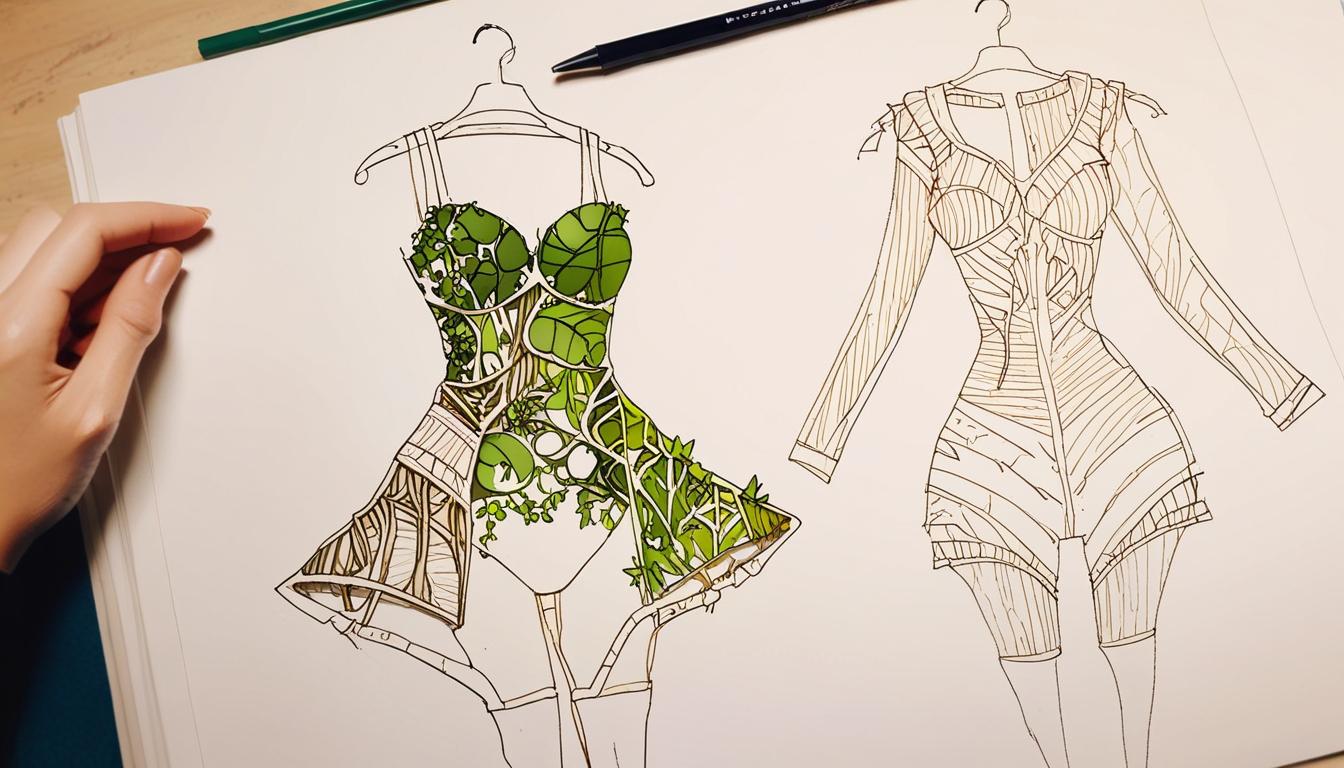The global fashion industry, recognised as one of the most polluting sectors worldwide, is witnessing a growing movement towards sustainability as brands launch initiatives coinciding with Earth Month and Earth Day, observed every April. Despite producing approximately 100 billion garments annually—double the amount since 2000 and projected to rise by 63% by 2030 and triple by 2050—the sector is beginning to address its environmental footprint through various innovative projects.
Fashion’s environmental impact is significant, contributing roughly 4% of global greenhouse gas emissions, a figure comparable to the combined output of Germany, France, and the United Kingdom. Consumer habits also exacerbate the problem, with the average person purchasing 60% more clothing than 15 years ago but wearing items on average only ten times before disposal—half as long as previously.
In response, several brands have launched initiatives to increase awareness and action on sustainability. The iconic fashion brand Guess hosted a panel titled "Conscious consumerism: how social impact narratives are redefining brand loyalty" in Los Angeles on 16 April, intended to explore how social and environmental justice can influence fashion industry practices. The discussion was moderated by sustainability activist Aditi Yer, notable for her work in ethical fashion and environmental storytelling. Yer highlighted the shift in brand-consumer relationships driven by social impact narratives, and revealed that Guess is deepening its commitment through its Guess Eco collection. This line includes clothing made with reduced water use, fewer chemicals, and sustainable fabrics such as organic cotton and recycled polyester sourced from plastic bottles.
The panel featured several prominent sustainability experts, including Chloe Songer, CEO and founder of Super Circle, a digital platform enabling customers to recycle their worn clothing for store credit while assisting brands in managing excess inventory. Samata Pattinson, CEO of Black Pearl, a cultural sustainability agency, and Joe Laskin, director of development at North East Trees—the organisation involved in restoring Los Angeles after the fires—also shared their expertise during the event.
Elsewhere, Thermore, a company specialising in thermal insulation for clothing, announced a collaboration with Italian illustrator Jacopo Ascari to produce a customised puffer jacket for British brand Contrado in honour of Earth Day 2025. Ascari’s project, “Tutto su mia madre (terra)” (All About My Mother (Earth)), integrates art inspired by masters such as Botticelli, Picasso, and Klimt to convey themes of rebirth and environmental protection. Speaking about the initiative, Ascari said, “This project stems from a desire to pay tribute to the Earth as one honours a mother: with respect, tenderness, and deep love... I believe that art, like fashion, has the power to raise awareness and stir consciences."
Additional sustainable innovations include Themoirè, a Made in Italy vegan bag brand that has introduced a range of bags made from Pineapple Fabric, comprising 77% pineapple leaf fibre processed with minimal energy and chemicals. This fabric supports key United Nations Sustainable Development Goals by promoting responsible consumption, climate action, and partnerships, while enabling significant CO₂ savings and reduced water use during production.
Scarpa has unveiled the Spin Planet, a trail and running shoe incorporating 100% recycled upper yarns, a 45% recycled EVA midsole, and 30% recycled rubber in the tread. Designed to provide cushioning and protection, the shoe targets new long-distance runners looking for sustainable choices.
LaMunt, an outdoor clothing company, has launched a Gear Aid Tenacious Tape repair kit timed for Earth Day 2025. The kit includes six adhesive patches designed to extend the life of outdoor garments made from nylon, polyester, and canvas by allowing straightforward repairs. The patches feature strong adhesives as well as monogram and mountain-themed patterns aimed at keeping damaged clothes functional and stylish.
Norwegian outdoor heritage brand Norrøna continues its long-term commitment to sustainability as part of its Responsibility Roadmap 2029, which outlines ten ambitious goals to enhance environmental and social accountability ahead of its centennial. In April, the company focused on the critical goal of achieving a zero carbon footprint, involving product carbon impact reduction and collaboration with innovators like Renewable Carbon. These efforts explore the creation of synthetic-like materials derived from captured greenhouse gases, organic waste, and natural resources. Norrøna is also engaged in piloting next-generation fibres from sources including food waste, methane, and seaweed, integrating sustainability deeply into its business model.
Collectively, these initiatives underscore a growing recognition within the fashion and apparel sectors of the need to combine quality, design, and sustainability. The industry’s movement towards environmentally conscious production and consumer engagement demonstrates evolving priorities as global attention centres increasingly on climate impacts and resource use.
The Spin-Off.com is reporting on these developments and the ongoing efforts by various brands to address the fashion industry’s environmental challenges amid broader cultural and consumer shifts.
Source: Noah Wire Services
